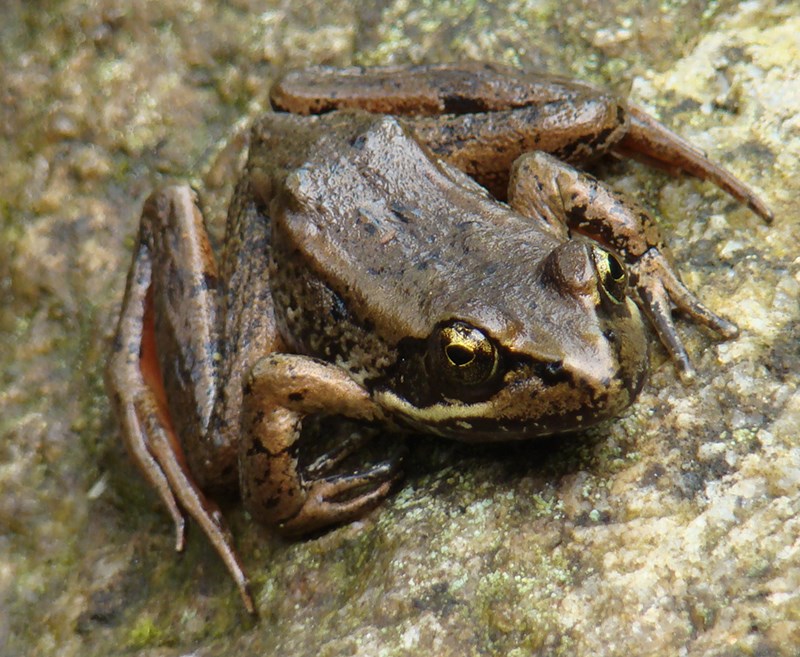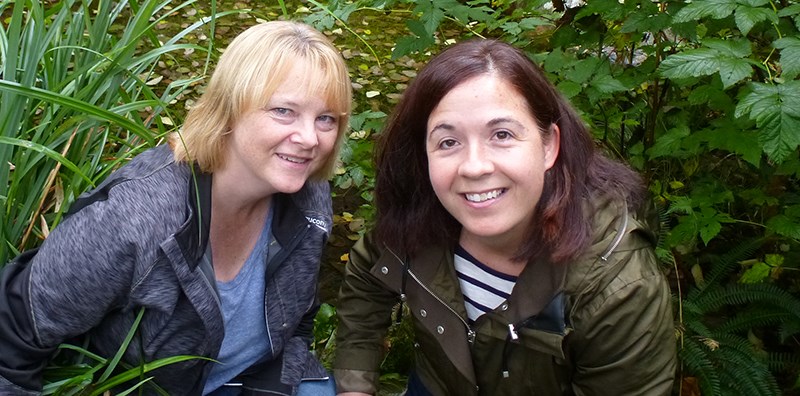Ann Marie Oktaba's Anmore property is home to the rare northern red-legged frog — and she plans to keep it that way.
Oktaba, an active gardener and nature enthusiast, is a nature steward with the South Coast Conservation Program (SCCP) who takes a special interest in frogs and other wildlife that cross her path.
"It's exciting because you don't see them very often," said Oktaba of the neighbours that live in the forest around her pond.
Oktaba, who moved with her husband to the one-acre sloped property on Eagle Mountain about seven years ago, has transformed the lot into a safe haven for many creatures by planting native plants, shrubs and trees. Her work has paid off because, besides frogs, she has seen salamanders as well as threatened band-tailed pigeons. Deer, bear and bobcats are neighbours, too.

There are approximately 260 species at risk in the Lower Mainland and 150 of them may be found in the Tri-Cities, including the red-legged frog, and the South Coast Conservation Program is looking for property owners who will protect habitat for these endangered species.
"We want to raise awareness and let people know about steps they can take to protect these areas," explained Tamsin Baker, SCCP stewardship co-ordinator.
With funding from Environment Canada and BC Hydro, The Landowners Stewardship program is operating in the Tri-Cities, including Anmore and Belcarra, as well as the communities of Yarrow and Vedder Mountain in the Fraser Valley.
Baker said SCCP is looking for people who are willing to look after their property by controlling the spread of invasive plant species and planting native species while foregoing the use of pesticides and herbicides. In exchange, her organization will visit the property and provide information about what makes the property ecologically unique, as well as providing tips for improving habitat and incorporating features that attract insects and birds.
Baker said properties located next to a forest, wetland or creek are ideal for the program.
• For more information, email Baker at [email protected] or call 604-202-2381.



